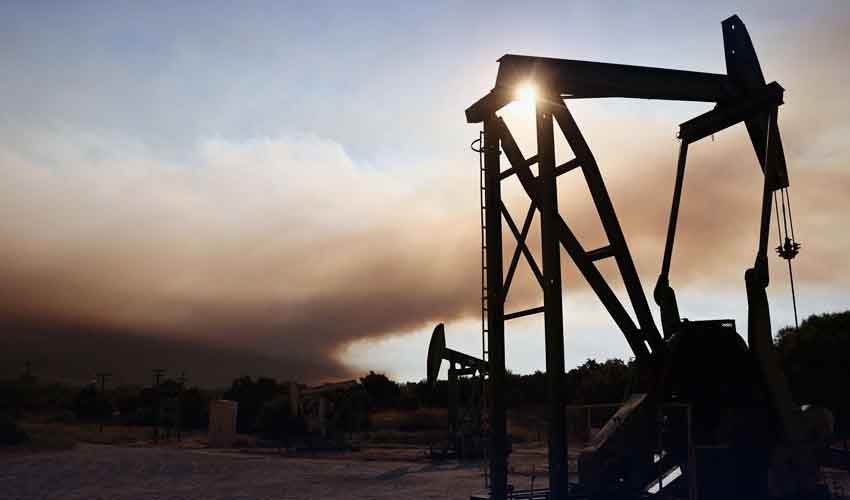Oil prices inched higher on Thursday as U.S. crude inventories saw a smaller-than-expected increase last week, coupled with significant draws in fuel stocks.
Brent crude futures nudged up by 15 cents to reach $83.11 a barrel, while U.S. West Texas Intermediate crude futures rose by 18 cents to $79.31 a barrel.
The uptick follows a 1% increase in benchmarks observed on Wednesday, driven by a crude inventory rise of 1.4 million barrels, which fell short of the 2.1 million-barrel forecast predicted by analysts in a Reuters poll.
Conversely, gasoline and distillate stocks recorded larger declines than anticipated, as per the data released by the Energy Information Administration (EIA).
Amidst these developments, a Reuters poll of foreign exchange strategists suggests that a strong U.S. dollar is expected to persist in the near term, with markets anticipating a potential delay in the U.S. Federal Reserve's first interest rate cut to the latter half of this year. Fed Chair Jerome Powell emphasized the uncertainty surrounding inflation progress, while affirming the central bank's intention to lower its benchmark interest rate within the year.
Market attention is also drawn towards upcoming Chinese trade data, with Beijing aiming for a GDP growth target of around 5% for the current year. However, skepticism persists among analysts, casting doubt on trade's ability to significantly propel the economy forward, given recent trends in imports and exports.
Additionally, in a reflection of supply constraints, Saudi Arabia, the leading oil exporter, raised prices for its flagship Arab Light crude sold to Asia in April to $1.70 a barrel above the Oman/Dubai average, according to trade sources.
This move underscores the ongoing dynamics within the oil market amidst broader economic and geopolitical considerations.



























